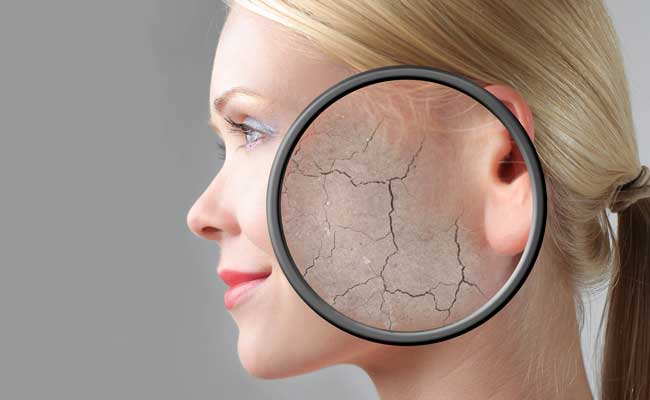Science and technology is like a double-edged sword but one thing is for sure that it has helped uncover a lot of unknown facts. It has indeed made our lives quite simple and easy. The wonders of science are not limited to our day to day life but also to some complicated matters which may be beyond our control. It's surprising but true. Let's take for instance this new study which claims that scientists may have actually found a way to slow down the natural ageing process in human beings.
That's what we're talking about, you never know with modern science!A group of Russian and Swedish scientists published a report on a joint study conducted by Lomonosov Moscow State University and Stockholm University where a synthetic compound has been developed that has shown to slow down ageing in mice. This study, published in US journal Aging, has raised hopes for an anti-ageing drug in two to three years.
The study was conducted to investigate the role of intracellular power stations, mitochondria, in the process of ageing of organism. Scientists made efforts to slow down ageing using a new compound called artificial antioxidant SkQ1 precisely targeted into mitochondria. This compound was developed in the Moscow State University by Russian biologist professor Vladimir Skulachev.The experiments conducted involved a special strain of genetically-modified mice created and characterized in Sweden. A single mutation was introduced into genome of these mice resulting in the substantially increased mutagenesis in mitochondria. This led to accelerated ageing and early death of the mutant mice. They live less than 1 year (normal mouse lives more than 2 years). The mutation developed many age-related defects and diseases indicating that the major defect of these mice was indeed ageing.
Starting from the age of 100 days one group of mutant mice was treated with small doses of SkQ1 (approximately 12 micrograms) added into their drinking water. Another group of animals served as a control group receiving pure water. The differences between the two groups became obvious. Animals in the control group aged rapidly as expected as compared to the other group. They started losing weight, their body temperature decreased, severe curvature of the spine (as a result of osteoporosis) and alopecia started developing, their skin became thinner, and in case of females estrus cycle was impaired.Further, their mobility and oxygen consumption were decreased. The development of all these typical traits of ageing was dramatically reduced in the group treated with SkQ1. Some of the ageing traits did not appear in that group at all.The co-author of this study said that the work was quite valuable from both theoretical and practical points of view as it clearly demonstrated the key role of mitochondrially produced reactive oxygen species in the process of ageing of mammals. At the same time the study opened the way to the treatment of ageing with mitochondrially targeted antioxidants. The team is now working on a set of pharmaceuticals based on SkQ1 molecule. The first drug called Visomitin eye drops has already been approved and marketed in Russia, it has also passed phase 2 clinical trials in US. The next pharmaceutical product in the project is an oral form of SkQ1 (similar to the one used in the aforementioned experiments). It is now in the process of clinical trials in Russia. In case of positive results of these trials, such "anti-ageing" drugs can be approved for systemic indications in 2-3 years.
That's what we're talking about, you never know with modern science!A group of Russian and Swedish scientists published a report on a joint study conducted by Lomonosov Moscow State University and Stockholm University where a synthetic compound has been developed that has shown to slow down ageing in mice. This study, published in US journal Aging, has raised hopes for an anti-ageing drug in two to three years.

The study was conducted to investigate the role of intracellular power stations, mitochondria, in the process of ageing of organism. Scientists made efforts to slow down ageing using a new compound called artificial antioxidant SkQ1 precisely targeted into mitochondria. This compound was developed in the Moscow State University by Russian biologist professor Vladimir Skulachev.The experiments conducted involved a special strain of genetically-modified mice created and characterized in Sweden. A single mutation was introduced into genome of these mice resulting in the substantially increased mutagenesis in mitochondria. This led to accelerated ageing and early death of the mutant mice. They live less than 1 year (normal mouse lives more than 2 years). The mutation developed many age-related defects and diseases indicating that the major defect of these mice was indeed ageing.
Starting from the age of 100 days one group of mutant mice was treated with small doses of SkQ1 (approximately 12 micrograms) added into their drinking water. Another group of animals served as a control group receiving pure water. The differences between the two groups became obvious. Animals in the control group aged rapidly as expected as compared to the other group. They started losing weight, their body temperature decreased, severe curvature of the spine (as a result of osteoporosis) and alopecia started developing, their skin became thinner, and in case of females estrus cycle was impaired.Further, their mobility and oxygen consumption were decreased. The development of all these typical traits of ageing was dramatically reduced in the group treated with SkQ1. Some of the ageing traits did not appear in that group at all.The co-author of this study said that the work was quite valuable from both theoretical and practical points of view as it clearly demonstrated the key role of mitochondrially produced reactive oxygen species in the process of ageing of mammals. At the same time the study opened the way to the treatment of ageing with mitochondrially targeted antioxidants. The team is now working on a set of pharmaceuticals based on SkQ1 molecule. The first drug called Visomitin eye drops has already been approved and marketed in Russia, it has also passed phase 2 clinical trials in US. The next pharmaceutical product in the project is an oral form of SkQ1 (similar to the one used in the aforementioned experiments). It is now in the process of clinical trials in Russia. In case of positive results of these trials, such "anti-ageing" drugs can be approved for systemic indications in 2-3 years.
Advertisement











